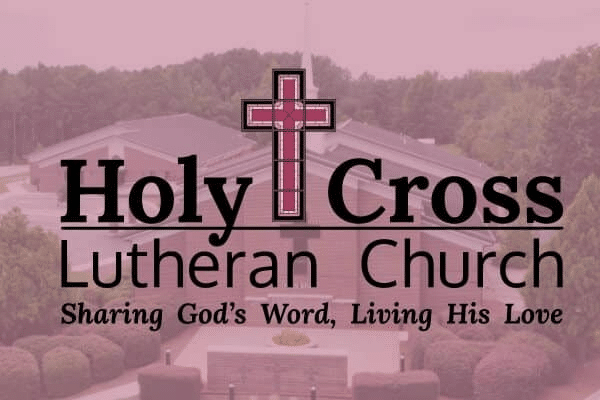
Luke 17:1-10
October 5, 2025
I’m sure most of us have a couch or sofa at our house and usually they look nice on the outside, but whenever we decide to flip the cushions we often find some interesting things, such as money, legos, potato chips, and jewelry. You can sit on your couch and never know that these items or many other things are underneath unless you flip or take the cushions off.
A lot of us live lives that are represented by a couch, in that we try to make ourselves look good on the outside. We come to church on a Sunday and we shake hands, hug people, strike up conversations and we appear to look like everything is going well. We look good at work during the week and we look great on social media, but the reality is many of us are very much like a couch – good on the outside, but not on the inside. If you dig deep down, there are things inside each of us that are messy. Many of us push that stuff down in the cracks and we tend to forget that it’s there or we come up with coping mechanisms so that we can live with the stuff that we try to hide on the inside.
As a result, sometimes we come to church thinking we are the only ones who are hurting, because everyone else looks so good. The reality is most of us in this room are filled with hurt, pain, or a sense of embarrassment. Many of us or many people around us are stuck in the past, reliving their mess over and over, and they can’t seem to let go of it. But Jesus did not die on a cross and rise from the dead so that we could be stuck in the past. He nailed my mess and your mess to the cross, and He died to forgive us, but He rose so that you could let go of the past and move into the future knowing that you are forgiven.
In our Gospel lesson for today from Luke 17, we find Jesus’ disciples experiencing a sense of fear and anxiety as they look at the past and consider the future, knowing that Jesus has given them some challenging instructions. In verses 1-4, Jesus said, “Temptations to sin are sure to come, but woe to the one through whom they come! It would be better for him if a millstone (which was a really large stone) were hung around his neck and he were cast into the sea than that he should cause one of these little ones to sin. Pay attention to yourselves! If your brother sins, rebuke him, and if he repents, forgive him, and if he sins against you seven times in the day, and turns to you seven times, saying, ‘I repent,’ you must forgive him.” Jesus gave His disciples two directives with these words: 1) Don’t be a stumbling block to someone else’s faith, and 2) Forgive others. Those were some tough directives and while the disciples might have looked on the outside that they could do that, on the inside they knew they were not up to the challenge. Still, Jesus was very serious about this command and these words apply to us as well.
We live in a society that would like nothing more than for us to undermine our faithful walk with God. “Come on, everyone’s doing it. What’s the big deal?” Those words bombard us every day. From television to social media, we find all sorts of temptations that seek to turn us away from God and in the process to get others to turn away from God. As Christians, people ought to know through our words and actions that we are followers of Jesus, as we have the privilege of representing Jesus to others. But when people see us saying or doing things that are contrary to the Christian faith, it can easily lead them to wonder how serious we are about our faith, which can lead them to wonder about God and tempt them to say or do the very same things, assuming it must be all right. So Jesus says in this text, “Pay attention to yourselves,” and that requires faith.
Now, on the flip side, Jesus says that when people are a stumbling block to us, when they sin, we must forgive them again and again, even if this means forgiving the same person 7 times for the same sin in the same day. Forgiveness seems like a great thing, until we have to do it. While we love to hear how God forgives us and forgets our sins, it’s hard for us to do that same thing to others. It is very easy to be selfish and to put conditions on forgiveness, even though God always forgives us unconditionally. How many times have we said, “I forgive him, but I cannot forget what he did to me.” While we may not be able to forget what someone did to us, we still need to forgive them again and again.
But that sounds like Jesus is expecting the impossible from us when He commands us to forgive again and again, doesn’t it? That’s certainly how the disciples felt as they basically threw up their hands and said in verse 5, “Increase our faith!” meaning, “It would take a tremendous amount of faith to be able to do that – forgive my brother 7 times in the same day for the same sin. Who has that kind of faith, Jesus?” Haven’t we all said similar things? “I wish I could forgive her, but I just can’t, I don’t have that kind of faith.” “I know I’m supposed to love my neighbor, but based on the way he treats me, I can’t do it, I’m not strong enough.” “She has hurt me too many times for me to forgive her anymore. Only God can forgive her now.” It’s like we’re blaming God for our inability to do what He wants us to do.
But note Jesus’ response to His disciples’ request for a super-sized faith. In Verse 6 Jesus said: “If you had faith like a grain of mustard seed you could say to this mulberry tree, ‘Be uprooted and planted in the sea,’ and it would obey you.” Jesus’ point is that it does not matter if your faith is huge or small, strong or weak, any amount of faith will do great things, because the key is Jesus – the object of our faith. If you put your faith in people or money or things, they may make you happy for a while, but they will not last. People move and eventually die, things break and eventually stop working. But when you put your faith in God, you can do great things, because His power will never end.
So to ask God to increase your faith is kind of an insult. He’s already given us faith, the key for us is to act in faith – to be faithful as we live out the grace and love of God without regard for ourselves. Jesus illustrates this thought in the second half of our Gospel reading with a story of a master who doesn’t thank his servants for doing what he has commanded them to do. The servant’s job was to serve His master. The master doesn’t owe him a reward or anything. Likewise, when we are faithful to God, we are not given a medal. When we do good things for God, that does not earn us a place in heaven. When we watch our behavior and forgive others, we are not doing anything extraordinary, we are simply doing what God expects us to do.
And yet, it is impossible to serve God as He expects. We are sinful and weak, and at times our lives are an absolute mess. However, in His grace God tells us that He loves us, and He proved His love for us when He sent Jesus to this world to take away our sins and our mess by dying on a cross. So Jesus simply urges us then to use the gifts, talents, and faith that He has given to us to serve one another and to forgive one another. Therefore, there is no reason for excuses such as, “I can’t forgive, my faith is too weak;” rather there are only opportunities. God places us among each other to serve as a source of encouragement and forgiveness; and His faithful love compels us to love each other – even though we can be so unlovable. But it is faith in God’s grace that enables us to do such things – faith that may be a tiny as a speck of dust, but it is a faith in a great and gracious God.
When a woman who was caught in adultery in the Bible was brought before Jesus, she did not ask for forgiveness, Jesus simply forgave her unconditionally, because He knew that was her greatest need. When Jesus forgave a paralyzed man of his sins, the man did not ask for forgiveness, Jesus saw that forgiveness was his greatest need, so He forgave him without question. As we experience Jesus’ unconditional forgiveness for us, even without asking, we will discover that we cannot help but to want to share His forgiveness with others. So let’s put Jesus’ words of forgiveness into practice this week, because that’s what God did for us, and it may be the greatest thing we can do for others.


